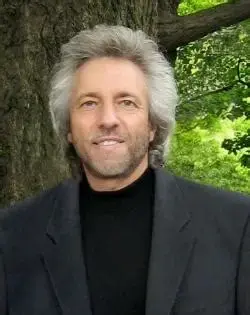Metafisica. Mentalism and New Thought. Episode I
- Editorial

- Jan 9, 2024
- 4 min read
Updated: May 19, 2024
(Metaphisics from the grec μετά τά φυσικά, metá ta physikà, beyond physics books)
Aristotle conceived metaphysics (which he called "first philosophy") as the highest of the sciences since it is concerned with studying the supreme principles and first causes of reality.
Ancient Greece was located in the eastern part of the Mediterranean and was the result of the fusion of different peoples who lived in the south of the Balkan Peninsula, the coasts of Asia Minor, and the islands of the Aegean Sea. They shared the same language, religion, culture, and territory known as Hellas, or "country of the Hellenes." The connection between ancient Hellas and other great civilizations such as the Persians leads us to understand that vast and ancient knowledge was shared and transmitted between the great civilizations of antiquity. It calls the attention, for example,the Platon's reference to Atlantis in one of his most prestigious and recognized writings, Plato's Dialogues. This knowledge has its source in the Egyptian priests of the city of Sais, located in the Nile Delta.
For his part, Proclus alluded the trip that Crantor, philosopher of the Platonic Academy, made to Egypt and how he was able to witness the existence of some inscriptions in which the story that Solon had told appeared.
ATLANTIS IN PLATO'S "DIALOGUES".
Ατλαντίς νῆσος (Atlantís nēsos) or THE ISLAND-PENINSULA OF ATLANTIS

Fresh on the island of Thera. It represents a city palace surrounded by several water fences, with its inhabitants leaning out on the terraces. Ornate boats, lions, gazelles, and dolphins surround it. Fountain.
All this leads us to have a clear conclusion that truly important and conclusive knowledge for Humanity is a legacy that comes from the mists of time. Looking at the history of our society, it is perfectly understood that such knowledge is not always what may be of interest to power, that society knows first-hand and imperatively. In the Vatican, there is an ancient library that collects true treasures of wisdom, not open to the public.

Metaphysica, Vatican Apostolic Library, Vatican
The so-called Vatican Apostolic Library (Bibliotheca Apostolica Vaticana, in Latin)
is located in the Vatican City. This is one of the oldest libraries in the world with a very important and very old collection of historical texts. Previously, the oldest manuscripts that began to make up the current Vatican Library were kept in the so-called Palazzo Laterano, which was built on top of the ancient papal palace called Patriarchio Costantiniano, a millenary building of Imperial Rome, and seat of the ancient popes for more. a thousand years old, and surprisingly demolished to build in its place in 1485 the Palazzo Lateano.
Presumably, the oldest, most valuable, and, above all, secret information was kept in the Patriarchio Costantiniano.
We must remember that the burning of books, and the destruction of valuable collections of the most ancient knowledge, have been very common throughout the centuries such as the library of Alexandria, burned by the Romans, in the 2nd century. It is worth asking, however, whether a large part of this and other similar ancient writings were not confiscated and taken to safe places, and do they still exist today? It is estimated that in the Vatican Library, there are more than 100 thousand historical manuscripts, more than one and a half million ancient or modern books, about 100 thousand printed documents, and fragments of parchments of incalculable value. It is a legacy of Humanity. However, one may wonder how many of these books are accessible.
Contrary to what is believed, knowledge is not within the reach of everyone, but rather within the reach of those who wish to "know more about the so-called official knowledge", and are dedicated to searching and carrying out their own research.
The roots of the knowledge that moved the movement called "Mentalism" or "New Thought" are undoubtedly in the desire to know beyond what the current thought and belief of the society of our time considers admissible and not within what we can say it is the current scientific dogmatism. A dogmatism that prevents free thought from those who decide that it is the only admissible and unalterable current of human knowledge.
But if there is something that can be altered precisely, it is knowledge.

The metaphysics schools called New Thouth and Mentalism have a true star map of free thinkers, who in diverse and never dogmatic ways, consolidated the reconstruction of ancient knowledge, previously conveniently forgotten, that grants material, social and, above all, spiritual power of the human being. This movement arose in the last decades of the 19th century, a unique time when the self-knowledge of one's being, from a point of view that is not only spiritual, but also metaphysical and far from castrating religious dogmas officially prevailed in a large part of Western societies, Also in others under the yoke of overwhelming religious practices, and that did not dignify the power of being at all, quite the opposite.
We publish here a list of relevant metaphysicians, the vast majority of authors of successful books, successful men and women themselves in their own personal and professional lives.
Emmet Fox
Neville Goddard
Genevieve Behrend
Vermon Howard
Claude M. Bristol
Elizabeth Towne
Emma Curtis Hopkins
Raymond Charles Barker
William Walker Atkinson 1852 .
Thomas Troward
H. Emilie Carly
Catherine Ponder
Rober Collier
Myrtle Fillmore
James Dillet Freeman
Joseph Murphy
Ernest Holmes
Charles Fillmore
Florence Scovel Shinn
Prentice Mulford
Orison Swett Marden
Wallace Wattler
Los espososTowne (Elizabeth y William)
Ralph Waldo Emerson.
Conny Mendez
Louise Hay
Next episode: The fundamental universal laws.
Total episodes 7. One episode will be published monthly.
Sign up for the BOOK CLUB so you don't miss any articles or activities.


